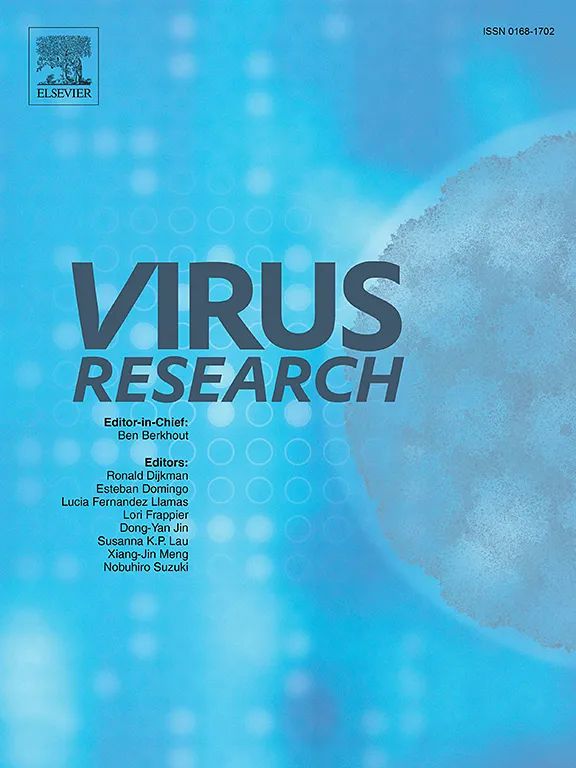SARS-CoV-2刺突蛋白614位单氨基酸取代改变病毒组装和传染性
IF 2.7
4区 医学
Q3 VIROLOGY
引用次数: 0
摘要
SARS-CoV-2的出现对全球公共卫生构成了重大威胁,并导致了各种变体菌株的出现。在连续的SARS- CoV-2变体的刺突糖蛋白(S)中通常检测到一种流行的突变D614G,这增强了病毒的传染性。在这里,目的是检查突变对S蛋白合成和加工、病毒组装和感染性的影响。这是通过密码子修饰用19种不同的氨基酸(包括甘氨酸)人工取代S蛋白614位的天冬氨酸来实现的。本研究采用假病毒和病毒样颗粒作为模型。结果表明,修饰后的S蛋白的表达特征与原D614变体不同。此外,不同突变的假病毒在进入表达ACE2的细胞时表现出不同的效率。值得注意的是,D614P和D614C突变破坏了S蛋白的生产和加工,对病毒组装产生了显著影响。然而,共免疫沉淀分析表明,D614突变并未阻碍S蛋白与ACE2受体的相互作用。这些发现强调了D614或G614在S蛋白表达和病毒组装中的重要意义,为基于刺突的疫苗和抗病毒治疗的研究进展提供了新的靶点和视角。本文章由计算机程序翻译,如有差异,请以英文原文为准。
Single amino acid substitution at position 614 in SARS-CoV-2 Spike Protein alters viral assembly and infectivity
The emergence of SARS-CoV-2 has posed a substantial global public - health threat and has led to the emergence of diverse variant strains. A prevalent mutation, D614G, is commonly detected in the spike glycoprotein (S) of successive SARS- CoV-2 variants, which enhances viral infectivity. Here, the objective was to examine the influence of mutations on the synthesis and processing of the S protein, virus assembly, and infectivity. This was achieved by artificially substituting the aspartic acid at position 614 of the S protein with 19 distinct amino acids, including glycine, via codon modification. Pseudoviruses and virus-like particles were employed as models for this investigation. The results demonstrated that the expression characteristics of the modified S proteins diverged from those of the original D614 variant. Moreover, pseudoviruses with various mutations displayed different efficiencies in entering cells expressing ACE2. Significantly, the D614P and D614C mutations disrupted the production and processing of the S protein, exerting a notable impact on virus assembly. However, co-immunoprecipitation analysis indicated that D614 mutations did not hinder the interaction between the S protein and the ACE2 receptor. These findings emphasize the significance of D614 or G614 in S protein expression and virus assembly, providing novel targets and perspectives for the progress of research on spike-based vaccines and antiviral therapeutics.
求助全文
通过发布文献求助,成功后即可免费获取论文全文。
去求助
来源期刊

Virus research
医学-病毒学
CiteScore
9.50
自引率
2.00%
发文量
239
审稿时长
43 days
期刊介绍:
Virus Research provides a means of fast publication for original papers on fundamental research in virology. Contributions on new developments concerning virus structure, replication, pathogenesis and evolution are encouraged. These include reports describing virus morphology, the function and antigenic analysis of virus structural components, virus genome structure and expression, analysis on virus replication processes, virus evolution in connection with antiviral interventions, effects of viruses on their host cells, particularly on the immune system, and the pathogenesis of virus infections, including oncogene activation and transduction.
 求助内容:
求助内容: 应助结果提醒方式:
应助结果提醒方式:


